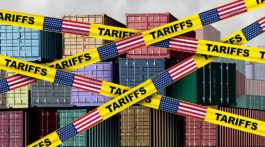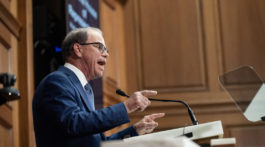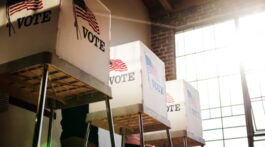By Betsy Wiley, President & CEO, The Institute for Quality Education
Indiana’s Choice Scholarship program has been the subject of both high praise and fierce opposition since its 2011 debut and the Indiana Supreme Court’s unanimous 2013 decision that school vouchers empowering parental choice in K-12 education pass constitutional muster.
Designed to offer Hoosier families options beyond their assigned neighborhood school, lawmakers have expanded the voucher program to more and more families. Last year, lawmakers expanded access to those whose incomes are at or below 400% of federal school lunch program guidelines, covering roughly 97% of Hoosier K-12 students.
Now it is time to take the final step and join other states in making school vouchers universally available regardless of income. Doing so in 2025 would align with principles of equity, foster healthy competition, and ultimately benefit our entire educational landscape.
Education is a fundamental right. Access to quality schooling is essential for all children regardless of their socio-economic background. Just as low-income families deserve to use vouchers to choose the best educational environment for their children, so too do higher-income families. Denying them this contradicts the principle of equality under the law.
Competition is a catalyst for improved outcomes. When schools compete for students, they are incentivized to enhance offerings, innovate teaching methods, and prioritize student success. Schools, both public and private, must strive to attract and retain students from diverse socio-economic backgrounds, thereby raising the overall quality of education statewide.
The success and growth of the voucher program shows that families see value in its results.
Data from student assessments highlight this. Of the 810 schools scoring 70% passing or higher on the 2023 IREAD exam, 219 were non-public schools, representing 27% of the high-performing schools despite comprising only 7.7% of total student enrollment. Additionally, out of the 114 schools with a 100% passing rate on the 2023 IREAD, 92 were non-public schools, or 80.7%. The top two schools in the state are non-public, voucher-accepting schools. Six of the top ten schools for ELA and math proficiency on the 2023 ILEARN are also non-public, voucher-accepting schools.
These statistics show excellence in education within voucher-accepting schools, further demonstrating the desirability of the Choice Scholarship program.
Indiana’s voucher program promotes not only quality results but diversity within our schools.
Students on vouchers are 65% White, 17.4% Hispanic, 9% Black and 8.6% Other/Multi-Racial. Fully 55% of voucher students come from a home with a household income under $100,000. And 51% are metro-area students, 32% are from suburbs, and 19% from rural areas.
This diversity fosters a better educational experience, exposing students to different perspectives, cultures, and ideas. It prepares them for a diverse workforce and society, promoting social cohesion and understanding. Excluding high-income families from Indiana’s voucher program limits opportunities for interaction and hinders the development of inclusive school communities.
Critics argue that extending vouchers to high-income families diverts resources from public schools, exacerbating funding disparities. However, our education system is not “publicly funded” - it is “taxpayer funded” and Hoosier families with school-age children at all income levels are taxpayers, so it stands to reason that they should be eligible to participate.
Critics also conveniently overlook the economic benefits of school choice. When families opt for vouchers, they relieve the burden on public schools, reducing overcrowding and potentially lowering per-pupil expenditures. Moreover, increased competition incentivizes schools to operate more efficiently, ultimately benefiting taxpayers and our economy.
Ultimately, parents are best positioned to determine the most suitable educational environment for their children. All Hoosiers deserve access to the schools and resources necessary for a quality education. The time for universal school choice is now.














